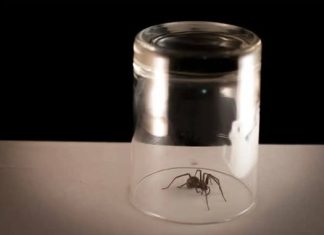On April 14, 2025, Blue Origin’s New Shepard rocket embarked on a historic suborbital flight, marking its 11th human mission and the first all-female crewed spaceflight since Valentina Tereshkova’s solo journey in 1963. The mission featured a diverse group of six women, including pop star Katy Perry, journalist Gayle King, aerospace engineer Aisha Bowe, civil rights activist Amanda Nguyen, film producer Kerianne Flynn, and Lauren Sánchez, who also organized the mission.
A Brief Yet Monumental Journey
The flight lasted approximately 10 minutes, during which the crew experienced weightlessness and viewed Earth from about 66 miles above the surface. The spacecraft, fully autonomous, required no pilots, allowing all participants to be considered crew members. Upon return, the crew was greeted by Jeff Bezos, who assisted with launch preparations and celebrated their safe landing.

Public Criticism and Environmental Concerns
Despite the mission’s groundbreaking nature, it faced significant backlash. Model Emily Ratajkowski publicly criticized the endeavor, labeling it as “disgusting” and accusing Blue Origin of environmental hypocrisy. She questioned the allocation of resources for a venture she perceived as more about publicity than scientific advancement. Actress Olivia Munn echoed similar sentiments, expressing skepticism about the mission’s purpose and highlighting the extravagant costs involved. She likened the trip to a theme park ride, questioning its necessity amid pressing global issues.
The Cost of Space Tourism
While Blue Origin has not disclosed the exact cost of the flight, estimates suggest that such experiences can cost around €475,000. In 2021, a passenger paid up to €28 million in a charity auction for a seat alongside Jeff Bezos. These figures underscore the exclusivity of space tourism and have fueled debates about its accessibility and priorities.
Cultural Impact and Future Implications
Katy Perry’s participation brought significant media attention to the mission. She shared her experience through videos, showcasing moments of zero gravity and singing “What a Wonderful World” during the flight. Perry described the journey as an “incredible” experience, ranking it second only to motherhood. The mission aimed to inspire future generations, especially women, to pursue interests in space exploration. Lauren Sánchez emphasized the importance of sharing their stories to create lasting impacts that would motivate others to dream big.

As the space tourism industry grows, the public debate surrounding it is likely to intensify. Many argue that the funds allocated to these luxury ventures could be better spent on solving issues on Earth—such as climate change, poverty, or healthcare. Supporters of space travel, however, maintain that innovation in space often leads to technological advancements that can benefit humanity at large. This flight also sets a precedent for representation, giving women—especially from underrepresented backgrounds—a visible role in the future of space. Whether seen as symbolic or indulgent, missions like this continue to spark global curiosity and conversation.
Conclusion
Blue Origin’s all-female spaceflight represents a significant milestone in space exploration, highlighting both advancements in inclusivity and the growing role of private companies in space travel. However, the mission also sparked discussions about environmental responsibility, the ethics of space tourism, and the societal implications of such high-cost endeavors. As space becomes more accessible to non-professionals, these conversations will be crucial in shaping the future of space exploration.

















